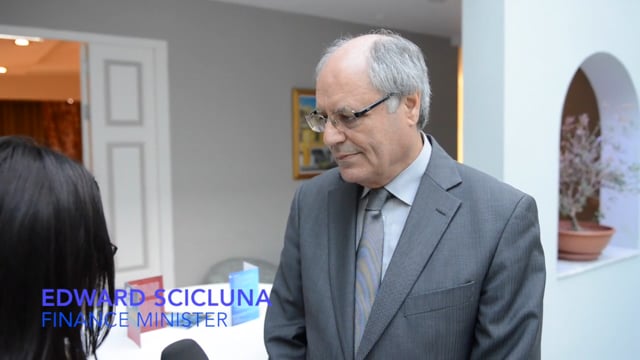Budgetary top-up ‘expected due to higher rate of economic growth’
Finance Minister Edward Scicluna says Malta seeking clarifications to understand how the European Commission arrived to the additional €13 million • Contribution to EU budget 'put on hold'


The €13 million budgetary top-up requested by the European Commission was the result of a higher rate of economic growth, Finance Minister Edward Scicluna said today.
Malta, together with a number EU member states, is being asked to top up its contribution to the EU budget by €13 million. Worst hit is the UK, where the EU asked a top up of €2.1 billion by 1 December. The contribution has now been put on hold until the EU's finance ministers seek clarifications by the Commission and Eurostat.
According to Malta’s finance minister, the top-up request is the result of GDP revisions and a higher rate of economic growth.
“Based on the quota, we have seen that our contribution to the EU had to go up and, in fact, has been growing up. This is why we have to ensure to make good use of the funds we receive,” Scicluna said.
The adjustment is a one-time payment.
Bulgaria, Ireland, Greece, Italy, Cyprus, and Latvia are also being asked for a budget top-up of between €6.5 million and €340 million.
The opposition of the United Kingdom, which is being asked for a €2.1 billion contribution, has promoted the Council of Ministers to pause discussions so that finance ministers seek clarifications.
“Malta is not surprised that the EU has asked for this top-up and we factored in the sum in our draft budgetary plan. But we are still seeking clarifications on how the EC calculated this figure,” Prime Minister Joseph Muscat said in an itial reaction.
In reply to questions by journalists, Scicluna said that “factoring in means we were expecting it”.
“We had the experts telling us along… we didn’t know the exact figure but we have been incrementally feeding it. My permanent secretary always says we have to factor in,” the minister said.
Scicluna many times said it was important for the government to have “contingency plans”.
He added that the overall revision – due to ESA 2010, the newest internationally compatible EU accounting framework for a systematic and detailed description of an economy – has led to the increase.
“I’m sure these revisions will then again be revised, hopefully downwards. Obviously, now it is our turn to ask the Commission for clarifications… we are not complaining,” he said.
Scicluna said that the clarification was being requested because the formula had changed, basing themselves on certain calculations.
The ESA 2010 also featured the black economy – mainly illegal drugs and prostitution.
“They made the estimates but we don’t know how these estimates were done by the NSO,” he said, adding that the figures were provisional.
Asked what were Malta’s estimates, Scicluna said he was informed through the newspapers that they were based on other countries.
“It very hard to get an estimate if it’s illegal. But there are indirect ways of how you can arrive to that.”
Malta will now ask how ask how revisions by the NSO resulted in the provisional estimates the Commission arrived to.
Asked about the UK's objection to the budget contributions, Scicluna preferred not to comment: "There are a lot of politics involved in this and I don't want to comment. I mean, for the UK at this point in time, it is very embarrassing... I would say politically for the party in government."








.jpeg)

.jpg)








